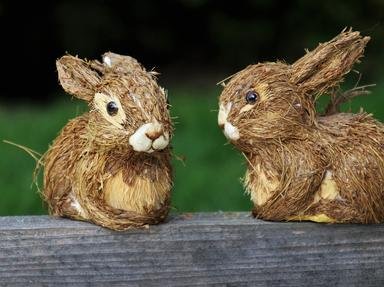Quiz Answer Key and Fun Facts
1. Part of a horse's hoof (4 letters)
2. Someone or something that sums numbers (5 letters)
3. A punctuation mark between elements of a list (5 letters)
4. A Scottish soup, originally made from a shin of beef (5 letters)
5. Again or afterwards (3 letters)
6. A cooking utensil that's heated and put over a dish to brown the top (10 letters)
7. A baseball pitch thrown with a combination of back- and sidespin (6 letters)
8. A slang term for a British soldier in the American War of Independence (7 letters)
9. An alternative name for the aspen tree (3 letters)
10. A mischievous child (6 letters)
Source: Author
Southendboy
This quiz was reviewed by FunTrivia editor
trident before going online.
Any errors found in FunTrivia content are routinely corrected through our feedback system.
